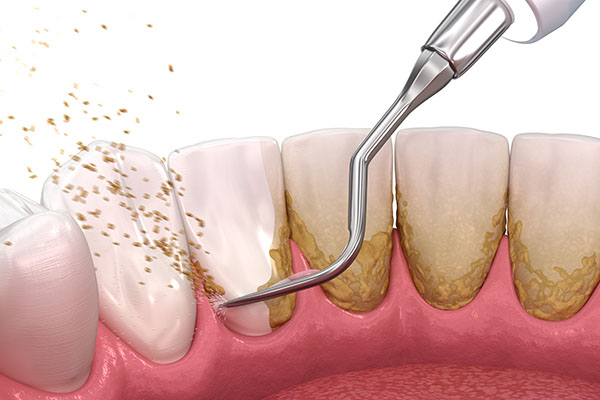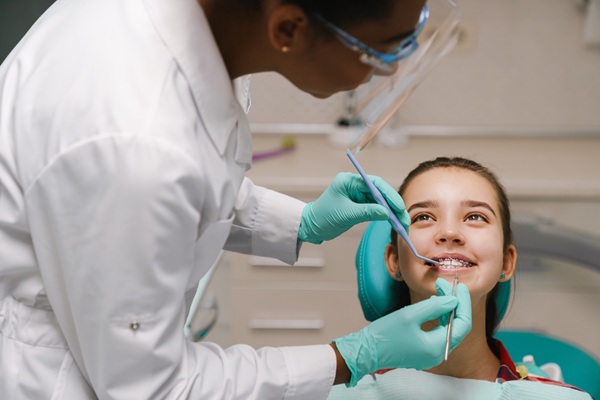 Although many people believe that plaque and tartar are the same, they actually have significant differences. Understanding the distinctions between these two dental conditions can help you identify their warning signs and practice oral hygiene basics to avoid them.
Although many people believe that plaque and tartar are the same, they actually have significant differences. Understanding the distinctions between these two dental conditions can help you identify their warning signs and practice oral hygiene basics to avoid them.
What is plaque?
Plaque is a soft film containing millions of bacteria that build up on your teeth, gums, and tongue. These bacteria feast on the food you eat and produce acids that disintegrate your enamel and lead to cavities. Plaque is a sticky substance that bacteria create to protect themselves and make them harder to remove. If you see a viscous white or yellow substance on your teeth or between your gums, it is most likely plaque.
Implementing oral hygiene basics, such as brushing your teeth and flossing, into your daily routine is important to prevent plaque and cavities from forming. If cavities are left untreated, the decay will eventually travel to the inner layer of the tooth that contains the nerve. This can lead to severe tooth pain, sensitivity, and visible holes in the tooth.
What is tartar?
If plaque is not removed, it hardens, trapping calcium and other minerals contained in the saliva. This is known as tartar. Tartar makes the teeth appear stained or discolored and traps plaque, increasing your risk of developing even more tartar. It can also build up around the gum line and result in the early stages of gum disease.
Unlike plaque, which can be removed by brushing your teeth twice a day and flossing, the only way tartar can be successfully removed is by visiting the dentist for a cleaning.
How do you know if you have plaque or tartar?
Some of the most common signs of plaque include chronic bad breath, a fuzzy or slimy feeling on the teeth, and tender gums that bleed after brushing. You may also find that your teeth are sensitive to hot or cold foods. On the other hand, common signs of tartar include discolored spots on the teeth, especially in between the teeth or near the gums, and painful, swollen gums.
You have a higher chance of developing plaque or tartar if you do not brush or floss regularly or seek regular dental care. Therefore, it is important to be diligent when it comes to oral hygiene basics
How can you prevent plaque?
Practicing good oral hygiene is key to preventing plaque and tartar buildup. This includes the following:
- Brushing your teeth at least twice a day
- Changing your toothbrush every three to four months
- Flossing every day
- Drinking plenty of water
- Visiting the dentist regularly
In addition, your food intake has a large impact on the state of your teeth. It is recommended that you generally stay away from candy, carbonated drinks, and foods high in carbohydrates, such as bread and chips.
Conclusion
Visiting a dentist regularly to remove plaque and tartar is essential to maintaining proper oral hygiene. Although you can clean off plaque by brushing your teeth and flossing, you must visit a dentist to get rid of tartar.
Request an appointment or call Cosmetic & Family Dentistry of the North Shore at 781-443-8268 for an appointment in our Swampscott office.
Recent Posts
Keeping up with oral hygiene basics can prevent cavities and other issues with your teeth. Proper daily care can also stop discoloration of the teeth and reduce bad breath. Here are some dental habits that people can benefit from including as part of a daily routine.One of the most important parts of oral hygiene is…
A healthy smile requires a lifetime of focusing on oral hygiene basics. Even if you currently have healthy teeth and history of proper dental care, a review of best practices is helpful to maintain good daily habits.Focus on the details of these broad oral hygiene basics to ensure you retain your healthy, natural pearly whites…
Practicing good oral hygiene basics is essential for keeping beautiful, strong teeth and gums as well as staying healthy throughout the entire body. Here are four of the most common ways to ensure excellent oral health and hygiene.Dentists recommend that everyone brush their teeth at least two times per day for two minutes each session.…


